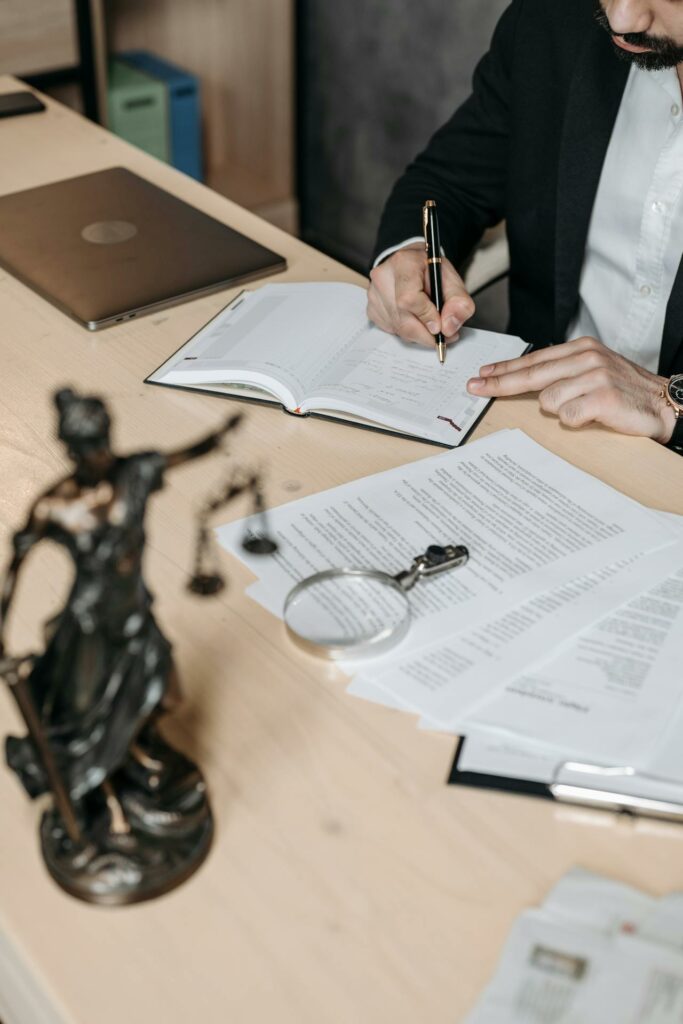Legal investigators serve as the backbone in legal proceedings, their role and methodology often shrouded in intrigue. By employing a diverse array of techniques, from detailed interviews to advanced digital forensics, they methodically unearth evidence that can tilt the balance of a case. However, the process is far from straightforward, bound by certain ethical standards and the requirement that the evidence must be admissible in court. The exploration of these methods and their implications on various case outcomes opens up a fascinating dialogue, prompting one to further investigate this critical aspect of our legal system.
Understanding the Role of Legal Investigators
While it is essential to comprehend the intricacies of the legal system, understanding the role of legal investigators is equally significant in the process. These professionals play a vital role in evidence analysis, which can often be the deciding factor in the outcome of a case. Legal investigators are responsible for meticulously gathering, scrutinizing, and interpreting evidence to support legal proceedings.
Investigator qualifications vary, but a strong background in law enforcement, criminal justice, or a related field is typically required. Additionally, they must be adept at conducting interviews, surveillance, and research, as well as thoroughly documenting their findings. Their analytical skills are essential for interpreting complex legal and factual issues.
The role of a legal investigator also extends to ensuring that all evidence is legally admissible in a court of law, which requires a thorough understanding of the law and legal procedures. This is a vital aspect of their work, as any oversight could potentially invalidate evidence, leading to an unfavorable ruling.
Essential Tools for Evidence Collection
As the field of legal investigation continues to evolve, the significance of advanced forensic technology cannot be overstated. Additionally, effective interviewing and surveillance techniques remain indispensable for collecting and interpreting evidence. We will explore the tools and techniques that are integral to modern investigative work, highlighting their practical applications and impact on the investigation process.
Forensic Technology Advancements
Harnessing the power of cutting-edge forensic technology has become paramount in the field of legal investigations. As technology advances, so too does the precision, reliability, and speed of evidence collection, which ultimately contributes to winning cases.
Specifically, three key advancements have revolutionized the industry:
- Biometric Analysis: Modern forensic technology now includes advanced biometric analysis tools. These can map unique physical or behavioral attributes, such as fingerprints or voice patterns, providing irrefutable evidence in court.
- Predictive Analytics: Predictive analytics software uses data and statistical algorithms to identify the likelihood of future outcomes. In the context of legal investigations, this can help predict and prevent crimes, or estimate the most probable scenarios based on available evidence.
- Advanced Imaging Techniques: High-resolution imaging tools, including 3D scanners and infrared cameras, have become indispensable in crime scene investigations. These tools provide detailed, accurate visual evidence, making it harder for criminals to dispute.
These advancements in forensic technology not only offer more efficient evidence collection but increase the accuracy of the evidence gathered. As a result, they have greatly improved the chances of achieving justice in the legal system.
Interviewing and Surveillance Techniques
In the domain of legal investigations, the adoption of advanced interviewing and surveillance techniques has become an essential tool for efficient and effective evidence collection. These methods are not only practical but also vital in gathering critical details that can greatly influence the outcome of a case.
Interview strategies are carefully devised to extract truthful information from witnesses, suspects, and other relevant individuals. An effective interview strategy involves a combination of open-ended questions, active listening, non-verbal cues, and strategic probing. The objective is to elicit a thorough narrative that can provide a clear and unambiguous picture of the incident under investigation.
Simultaneously, surveillance techniques are employed to observe the behavior, activities, or changing information of subjects. This can involve the use of technology, such as surveillance cameras or tracking devices, alongside human observation. Surveillance ethics are paramount in ensuring that these techniques are used lawfully, respecting privacy rights while still gathering necessary evidence.
Techniques in Uncovering Hidden Information
As we shift to the subtopic “Techniques in Uncovering Hidden Information,” the focus will shift to the specialized methods that legal investigators employ to reveal concealed facts. This includes the application of digital forensic tools, the execution of surveillance and observation tactics, and the strategic examination of documents. Each of these techniques requires a meticulous approach, an analytical mindset, and a deep understanding of legal and ethical boundaries.
Utilizing Digital Forensic Tools
The advent of digital forensic tools has revolutionized the process of uncovering hidden information in legal investigations. These tools are instrumental in data recovery, fundamental in cyber investigations, and essential to preserving online privacy. The complex landscape of digital evidence requires investigators to have a deep understanding and knowledge of malware analysis and encryption techniques.
Digital forensic tools offer a myriad of applications: – Social Media Investigations: These tools can track digital footprints across various social media platforms, enabling investigators to piece together a wealth of information that may be significant to a case. – Cloud Storage Forensics: Digital forensic tools can access and analyze data stored in cloud-based platforms, providing a rich source of potential evidence. – Forensic Analysis of Encrypted Data: Advanced tools can decrypt encrypted data, revealing hidden information that would otherwise remain inaccessible.
The increasing sophistication of digital crimes necessitates the use of these tools. They are pivotal in traversing the vast digital landscape, overcoming challenges related to encryption, and ensuring the integrity of the investigation process. Consequently, digital forensic tools are an essential component in the toolkit of every legal investigator.
Surveillance and Observation Tactics
Surveillance and observation tactics, traditional yet fundamental in the field of legal investigation, have gained a new dimension in the digital age. These methodologies, rooted in covert operations, have been invigorated by the rise of technology, enabling stealthy monitoring and data gathering on a scale never before imagined.
The goal of these operations is to unobtrusively observe and analyze the activities and behaviors of subjects under investigation. They often involve physical surveillance, where investigators discreetly follow and monitor targets, recording their actions, interactions, and movements. However, in the digital era, they also encompass online surveillance, where investigators scrutinize social media activities, digital communications, and other internet-based actions.
One vital aspect of these tactics is behavioral analysis. By systematically studying individuals’ behaviors, investigators can identify patterns, anomalies, or inconsistencies that may signal illicit activities or provide essential evidence. This process requires meticulous observation, careful documentation, and rigorous analysis.

Strategies for Document Examination
Delving into the domain of document examination reveals a treasure trove of strategies employed by legal investigators to uncover hidden information. Paramount to these endeavors is maintaining evidence integrity, a meticulous process that is the cornerstone of any successful legal investigation.
The first step involves document analysis where investigators scrutinize the content, looking for any inconsistencies or discrepancies that may point towards falsification. This process is not merely restricted to the text; even the paper, ink, and handwriting are under scrutiny.
- Forensic document examination employs specialized techniques to identify and compare handwriting, detect alterations, erasures or obliterations, and decipher indented writings.
- Advanced tools such as Video Spectral Comparator (VSC), Electrostatic Detection Apparatus (ESDA), and infrared reflectography aid in disclosing hidden alterations or enhancements.
- Digital forensics comes into play when dealing with electronic documents, where metadata can provide invaluable insights like the document’s origin, modification dates, and more.
Each strategy employed in the analysis of documents is a demonstration of the lengths investigators will go to guarantee the integrity of evidence. Ultimately, these meticulous techniques are key in revealing the truth and securing justice.
Importance of Witness Interviews
Integral to the foundation of any legal investigation, witness interviews serve as a vital source of information. They offer firsthand accounts of events, often bringing important insights that can shape the course of the case. Evaluating witness credibility is an essential aspect of these interviews, and this is where the investigator’s expertise plays a pivotal role.
Interview techniques are essential in extracting reliable information. Investigators must be adept at building rapport, asking open-ended questions, and reading non-verbal cues. These skills allow them to discern inconsistencies in testimonies, which could question witness credibility. A witness who changes their story or exhibits signs of deception can greatly impact the case’s outcome.
Moreover, witness interviews have an immense bearing on the understanding of the case’s context, helping investigators piece together the puzzle. They aid in corroborating or refuting other evidence, providing a more thorough view of the situation. Consequently, witness interviews are not merely meetings to gather facts; they are strategic, analytical encounters that can illuminate the truth. As a result, the importance of these interviews in any legal investigation is undeniable. They can mean the difference between a won or lost case.
The Art of Surveillance in Investigation
In the domain of legal investigation, the subtle dance of surveillance occupies a significant role. It is an art that combines an array of skills, tools, and tactics to gather essential evidence covertly, maintain situational awareness, and guarantee the success of the investigation.
- Covert operations necessitate advanced surveillance equipment and honed behavioral analysis skills to effectively track subjects and interpret their actions. Modern technology, such as drones and discreet audio-video recorders, facilitates seamless field observation and tracking methods without arousing suspicion.
- Counter surveillance tactics are crucial to avoid detection and secure the safety of investigators. These include using different vehicles, changing physical appearance, varying routines, and using reconnaissance strategies to study the environment ahead.
- Surveillance ethics and privacy concerns are paramount in any investigation. Investigators must adhere to laws and regulations to ensure the collected evidence is admissible in court. This involves respecting individual rights, avoiding trespassing, and not infracting on someone’s reasonable expectation of privacy.
Surveillance, when executed proficiently, provides indispensable evidence for winning cases. However, it requires a mastery of the art, a keen understanding of the legal boundaries, and a delicate balance between gathering evidence and respecting privacy.
Navigating Digital Trails for Evidence
With the dawn of the digital era, the investigative landscape has undergone a dramatic transformation. The tools and techniques used by legal investigators have been revolutionized, particularly in the domain of digital footprint analysis. This process involves the meticulous examination of a person’s online presence and activities. It can expose a wealth of information, from communication patterns and personal associations to behavioral tendencies and location data, all of which can be essential in building a robust case.
However, the digital landscape is not without its risks and challenges. Online privacy concerns have become increasingly prominent, creating a complex interplay between the need for evidence and the rights of the individual. Investigators must navigate this terrain carefully, ensuring they acquire and use digital evidence in a manner that respects these concerns.
This delicate balance requires a methodical approach. Investigators must understand the intricacies of the digital world, from social media to encrypted communications. They must also stay abreast of evolving legal and regulatory landscapes that govern the use of digital evidence. By doing so, they can better navigate the digital trails that may lead to essential evidence, thereby enhancing their chances of winning cases.
Legal Ethical Standards in Investigations
Maintaining the profession’s integrity, legal investigators must adhere to an established set of ethical standards during their inquiries. The ethical principles guiding investigations are not arbitrary, but meticulously crafted to uphold fairness and respect for all involved parties. These ethical standards help in traversing the complex terrain of ethical dilemmas that legal investigators often encounter.
Legal investigators face a multitude of responsibilities, and among these are:
- The responsibility to respect the rights and dignity of individuals involved in the investigation.
- The duty to conduct investigations with honesty, integrity, and adherence to the rule of law.
- The obligation to maintain confidentiality and protect the privacy of the individuals involved.
Abiding by these ethical standards, investigators guarantee they gather evidence that is both legally admissible and ethically obtained. It’s a balancing act of upholding the rights of individuals while pursuing the truth. By integrating these ethical standards into their practice, legal investigators can enhance their credibility, contribute to the integrity of their profession, and increase the likelihood of delivering justice. Ethical standards in investigations, therefore, play a pivotal role in the success of legal cases.
Real Case Studies: Successes and Challenges
Despite the firm ethical guidelines, real-world cases often present legal investigators with unique challenges and unexpected victories. A careful case study analysis reveals a rich tapestry of investigative challenges and triumphs that have shaped the landscape of legal investigations.
One such case involved an intricate web of financial fraud, where investigators had to sift through thousands of complex documents. The challenge lay not only in establishing the fraudulent activities but also in connecting the dots to the perpetrators. After months of meticulous work, the team managed to uncover the key evidence, leading to a successful prosecution.
In another case, an investigator had to use innovative techniques to gather evidence for a high-profile defamation suit. The challenge was to find irrefutable evidence that could stand up in court, amidst the noise of social media and public opinion. The investigator’s resourcefulness led to a significant win for the client.
These case studies demonstrate that despite the challenges, legal investigators can achieve remarkable successes through detail-oriented, analytical, and methodical approaches. Each case presents a unique set of circumstances, requiring innovative problem-solving and a steadfast commitment to justice.
Frequently Asked Questions
What Educational Background Is Needed to Become a Legal Investigator?
To become a legal investigator, the educational requirements typically include a bachelor’s degree in criminal justice, law, or a related field. Additional certifications or experience in law enforcement can enhance job prospects considerably.
How Much Does a Typical Legal Investigation Cost?
The cost of a legal investigation varies widely, influenced by factors such as case complexity, investigator experience, and duration. Typical investigation costs range from hundreds to thousands of dollars, depending on these pricing factors.
Can Legal Investigators Work on International Cases?
Yes, legal investigators can work on international cases, often requiring international collaboration. This process involves meticulous and methodical collection and analysis of cross border evidence to guarantee its relevance and validity in different legal systems.
Is There a Governing Body That Regulates the Activities of Legal Investigators?
Yes, there are regulatory frameworks that govern the activities of legal investigators, akin to a guiding compass. These bodies guarantee investigative ethics are maintained, providing stringent oversight to uphold professionalism and integrity in the field.
How Has the Field of Legal Investigation Evolved Over the Years?
The field of legal investigation has seen significant evolution, largely driven by technological advancements which have refined investigative techniques, enhancing the effectiveness, efficiency, and accuracy of evidence gathering, thereby improving case outcomes.






